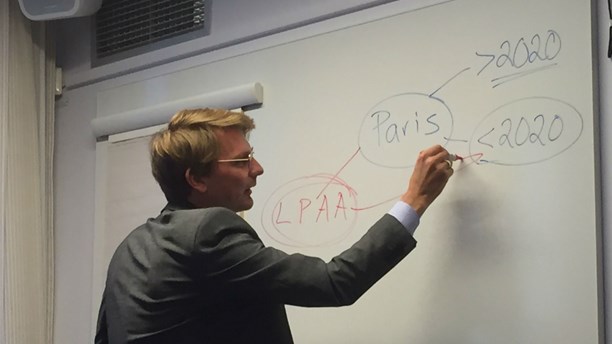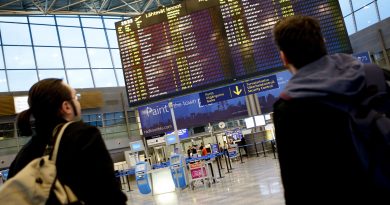Final round of UN climate talks before Paris

The final round of official pre-Paris climate negotiations take place in Bonn next week with countries, including Sweden, still working on untangling some of the unresolved problems that could hinder an historic UN Climate agreement.
The talks have been taking place at intervals since 2012, with environmental negotiators working on a new form of draft text before the Paris summit starts on Nov 30.
“The text being prepared should not only be politically acceptable but it should also be something that countries can ratify in their parliaments. And that places special demands on its design,” says Fredrik Hannerz, political adviser to Sweden’s Climate and Environment minister Åsa Romson.
He tells Radio Sweden that the “political will is there” among other countries for a lasting agreement in Paris.
Optimism compromise can be reached
Progress in negotiations has been made in the tabling of emissions targets by developed and developing countries while there is optimism that a compromise can be reached on the issue of “loss and damage”, where developing countries receive help after extreme weather events.
Johanna Lissinger Peitz, deputy negotiator of the Swedish delegation, believes that some of the unresolved problems can be positively addressed next week.
“We go to Bonn where almost 200 parties have presented their contributions to emissions reductions and adaptation. We go to Bonn on the back of a very important and crucial meeting in New York on sustainable development goals, and we go to Bonn with important political signals from the US and China. This gives us good conditions for negotiations,” says Johanna Lissinger Peitz to Radio Sweden.
Learning from Copenhagen mistakes
The UN climate change negotiations have been designed to avoid the mistakes of Copenhagen, removing roadblocks to ensure that negotiating teams can lay the groundwork for a climate agreement in December.
The Paris meeting will also discuss measures to be implemented before 2020 when the agreement is scheduled to come into force. This puts extra importance on the week of talks in Bonn.
Swedish position
Sweden negotiates first and foremost as a member of the EU, with the bloc’s guiding principles, but there are some points that are especially important for Sweden, says Johanna Lissinger Peitz, deputy negotiator for the Swedish delegation.
“For Sweden, one can say that these are three important questions. There is the question of a long-term goal. There is the issue of getting a dynamic agreement that can increase the ambitions gradually, and it is a question of having a good system for monitoring, measuring and reporting. And one can also add that it is important for us that there is a commitment to funding issues to support the least developed and most in need,” says Johanna Lissinger Peitz.
Sticking points
Some issues are always more difficult to agree on, she says, and they are often about what kind of legally binding commitment to have. It is often the issue of the so-called principle that countries have common but different responsibilities (CBDR – the Principle of Common but Differentiated Responsibilities), the disputed law was one of the main reasons why the United States chose not to ratify the Kyoto Protocol. How the principle should be reflected in the forthcoming text of the agreement remains to be seen.
“If everything goes right, the climate meeting in Paris will bind the parties to the ambitious measures. The text adopted in Paris should allow countries, over time, to keep emissions below two degrees Celsius, and it is in its own way, a test for all countries,” says Fredrik Hannerz.
The United Nations Climate Change Conference in Paris in 2015, COP21, will take place between 30 November and 11 December.
Related stories from around the North:
Asia: Asia ahead on preparing for polar climate change, says U.S. Arctic rep, Eye on the Arctic
Germany: Will Paris conference help the Arctic, Deutsche Welle Iceblogger
Iceland: Acid Arctic Ocean and Russell Brand?, by Deutsche Welle’s Iceblogger
Norway: Emissions speeding up Arctic Ocean acidification, Alaska Dispatch
Russia: Arctic mega-polluter pays record high dividends, Barents Observer
Sweden: Sweden backs EU climate line for Paris, Radio Sweden
United States: What Obama’s Arctic visit might mean for Paris, Eye on the Arctic



